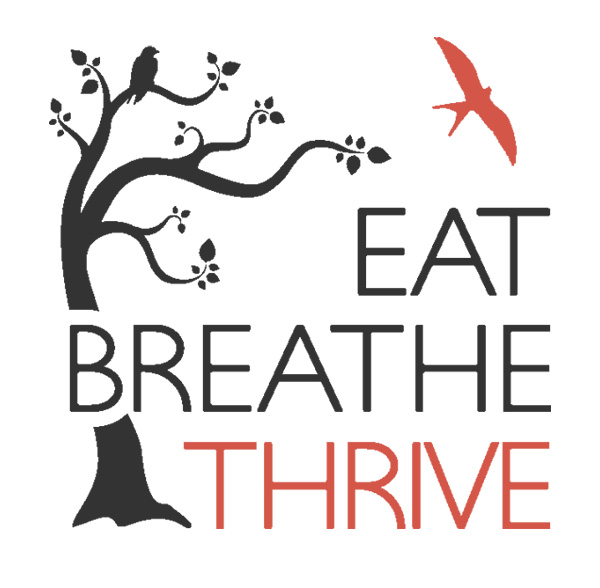Eating Disorders and Isolation: How Shame and Anxiety Make it Difficult to Recover
Although often associated with sensational images of extreme emaciation and attributed to unrealistic beauty standards, eating disorders are complex conditions with a broad range of causes, symptoms, and effects. Across the spectrum of eating disorders, social isolation is one common denominator which research has identified as both a potential risk factor and an effect.
Artwork by Ingrid Sanchez
Alienation And Secrecy
Covert in nature, eating disorders foster the social withdrawal and sense of disconnection in which they thrive. As Ashley Solomon, Executive Clinical Director at Eating Recovery Center, explains, “at their very core, eating disorders are illnesses of disconnection.” Behavioral symptoms (e.g. chronic over-exercise, peculiar food rituals, or self-enforced vomiting) and psychological symptoms (e.g. preoccupation with food and weight) of eating disorders encourage alienation. Access to social connection may be inhibited by disordered behaviors, which deplete an individual’s time and energy. Furthermore, eating disorders typically operate under a cloak of secrecy, the fabric of which may be woven from a diverse complexity of factors.
“Eating disorders typically operate under a cloak of secrecy, the fabric of which may be woven from a diverse complexity of factors.”
Ambivalence Towards Recovery
Denial of the illness, and resistance to or ambivalence towards treatment and recovery are characteristic in individuals struggling with eating disorders. As a result of the ambivalence that "is part of eating disordered behavior" (Treasure et al., 2007), individuals who struggle with eating disorders may withdraw from friends, family, and community to conceal symptoms and avoid being challenged about their behaviors. In this way, isolation can serve as a means to maintaining the eating disorder.
Debilitating Shame
Defined by Brené Brown as "the intensely painful feeling or experience of believing that we are flawed and therefore unworthy of love and belonging (…) and connection", shame has been identified as both a cause and consequence of eating disorders. Intense and pervasive shame may be entwined with various facets of an eating disorder, including (but by no means limited to) weight, body shape or size (body shame), overall physical appearance, and dietary intake, as well as shame pertaining to the self in general. Individuals may also experience shame about their struggles with an eating disorder; in particular within atypical cases and populations underrepresented within the media, the experience of shame may be a result of or perpetuated by stigma.
“Shame tells us that no one else could possibly understand, care for or help us. Shame insists that we don’t deserve friends or loved ones, especially not those who attempt to nourish us. Shame makes sure that we feel alone in the world, and stranded.”
— AMY LIU
Regardless of its specific source or focal point, shame acts an immobilizer; it encourages social withdrawal and breeds isolation. As suggested by the Indo-European root of the word "shame" — kam/kem: to cover, to veil, to hide — "the notion of hiding is intrinsic to and inseparable from the concept of shame." (Wurmser, 1981)
“Denial of the illness, and resistance to or ambivalence towards treatment and recovery are characteristic in individuals struggling with eating disorders.”
Stress And Anxiety
“The need to eat is one of the few experiences we all share. Coming together to prepare a meal, to serve it, to eat it, binds us to other people more often than sex and more closely than circumstance.”
As Harriet Brown notes in her book, Body of Truth, food is not only a basic human need, but it also a source of community and connection. We might dine with friends and family to mark a momentous occasion, such as a birthday or wedding. Even our everyday social interactions are frequently centered around the communal act of eating or drinking.
Due to the central role of food, socializing is likely to be a source of anxiety and stress for individuals who struggle with an eating disorder. In the midst of an eating disorder, social events may represent a challenge to the typically rigid rules and routines of the disorder. In addition, social anxiety is a common symptom and/or comorbid condition. Consequently, those who struggle with eating disorders will often avoid social gatherings, furthering the sense of isolation.
The Cycle Of Isolation
In this way, "isolation becomes the hollow core around which an eating disorder spirals." (Liu, A., 2011) This vicious and self-perpetuating cycle of isolation is arguably one of the most persistent triggers of eating disorders. Isolating oneself socially serves only to intensify the sense of disconnection and loneliness, reinforce the idea of the broken or flawed self, and validate a lack of self-worth — feelings and beliefs which often lie at the heart of an eating disorder.
Considering the central role of social isolation, as both a catalyst and maintaining factor of eating disorders, it logically follows that its opposite, social connection, plays a key role in motivating and sustaining recovery.
“The vicious and self-perpetuating cycle of isolation is arguably one of the most persistent triggers of eating disorders.”
Are you struggling with an eating disorder? Want to break the cycle of isolation?
Connect with others on the recovery journey, share struggles and celebrations, and access support through our four-week online course, Yoga for Eating Disorder Recovery.
Learn more

About The Author
Samantha Christodoulou is the Director of Operations for Eat Breathe Thrive, a graphic designer, Certified Yoga Teacher (RYT-500), and a Fellow of the Mental Health Collective.





This Valentine’s Day, use a yogic approach to express love! Read on to learn more about ahimsa, and how it relates to showing yourself love.